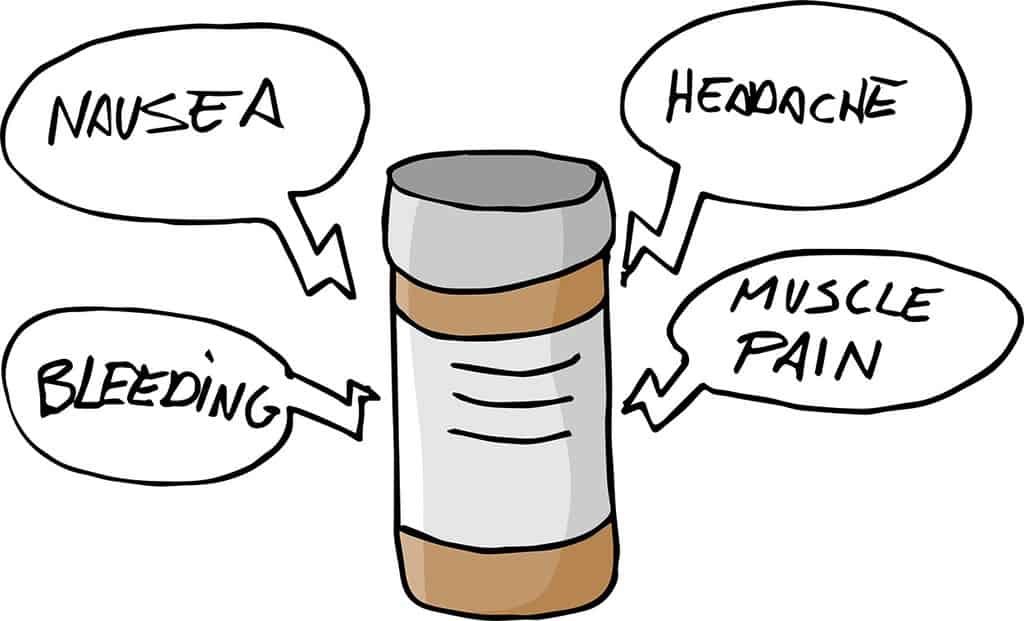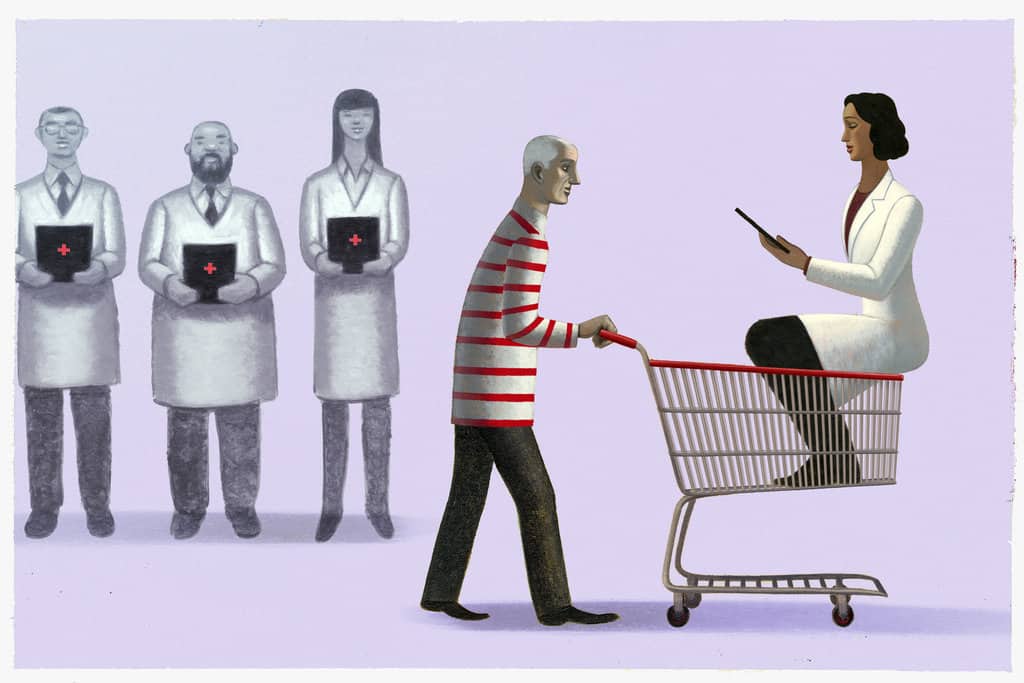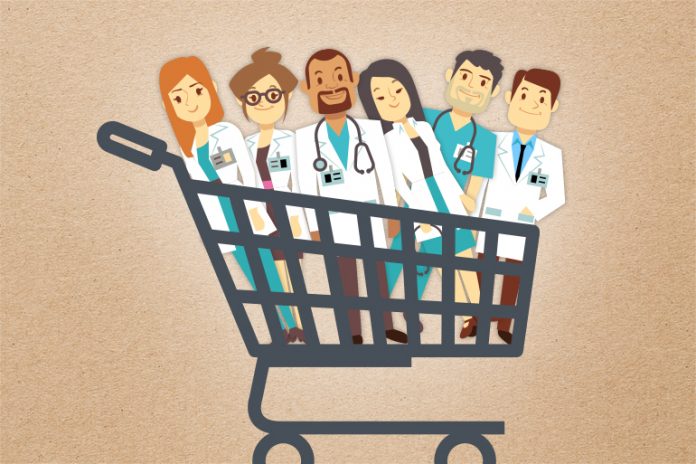Learn about doctor shopping, whether or not seniors should think twice before switching doctors, and why this practice is illegal in most states in America.
People in the United States enjoy many freedoms in healthcare; however, a growing number of people are seeking unsafe doses of prescription drugs by seeing numerous healthcare providers that is uncoordinated and potentially dangerous. This type of activity is known as “doctor shopping” and many states have already created legislation to address this common problem.

What is Doctor Shopping?
Seniors often see numerous specialists in addition to a primary healthcare provider. For example, one person might see a cardiologist for a history of heart disease and an endocrinologist for diabetes coordination. This is not considered doctor shopping in most cases, especially if a primary physician is coordinating care and all physicians are aware of the complete healthcare plan for the senior.

Doctor shopping often starts quite innocently and results in a person seeing multiple doctors for the purpose of getting prescription medications for non-medical purposes. For example, if a senior is experiencing pain due to an illness like shingles, a chronic condition like rheumatoid arthritis, or an injury such as a motor vehicular accident and the healthcare plan developed by one physician does not seem to be adequate, the patient might seek a second opinion or seek treatment from another healthcare site.

If the patient fails to tell the subsequent doctor of the previous healthcare plan, prescriptions, particularly those for controlled substances, may be written that exceed recommended dosages. More than one pharmacy may be involved with doctor shopping with the intention of diverting drugs, which further complicates matters.
According to the National Institute on Drug Abuse article “Prescription Drug Abuse,” the most common types of drugs that tend to be taken for nonmedical purposes are:
- Pain relievers (Readers may also wish to read How to Manage Pain Naturally in Older Adults)

- Tranquilizers
- Stimulants
- Sedatives

The United States Department of Justice has a list of controlled substances, some of which have a high potential for abuse. Readers may wish to see an alphabetical list of controlled substances and descriptions and examples of Schedules I through V Controlled Substances at the Office of Diversion Control web site.
Doctor Shopping Risks for Older Adults
According to the National Institute on Drug Abuse article “Trends in Prescription Drug Abuse,” senior populations account for approximately one-third of medications prescribed in the United States.

Many seniors may take medications for long periods of time due to chronic health conditions. Multiple medications are often needed for a variety of health problems, and many seniors may also take over-the-counter medications in addition to supplements, herbals, and/or home remedies. Although these prescriptions and other medications may be for legitimate medical reasons, coordination of care may be difficult and overlaps may occur without proper coordination and effective communication.

Doctor shopping could quickly result in potentially serious health problems such as:
- Drug interactions, particularly if medications are filled at different pharmacies
- Side effects, which might include permanent damage to body organs, confusion, or even death
- Addiction to a controlled substance, which could lead to diversion of drugs and other risky behaviors

How to Avoid Doctor Shopping
Addiction to prescription drugs is a rising problem, and seniors are not immune to doctor shopping with the intent to take higher than recommended dosages of prescription medications.
Taking a few practical steps at the physician’s office may help ensure that older adults avoid doctor shopping and receive appropriate, coordinated care, such as:
- Choose one primary care physician (this should be a trusted professional who is aware of your entire medical history, including all specialists).

- Be honest with the healthcare team if a care plan is not working – doctors often adjust plans based on evaluation of results reported by the patient.
- Ensure that important medical records are accessible by all physicians dealing with your care – HIPAA laws may require preauthorization by the patient in order to share some medical information.
- Ensure that all relevant medical records are sent to the appropriate offices if moving to a new location or changing doctors.

- Avoid seeking care for chronic conditions at the Emergency Department – watch for worsening symptoms or negative trends and notify the primary care provider or specialist if appropriate (do seek emergency care for emergency situations).
In addition, seniors may avoid doctor shopping with practical tips regarding medications:
- Get all prescriptions filled at a single pharmacy and keep medication information up-to-date.
- Take medications as prescribed and if unable to do so, notify the prescribing physician for further instructions.

- Do not wait until prescription refills run out in order to make a follow-up appointment with your physician.
- Take all medications (prescription, OTC, herbals, supplements, etc.) to appointments to ensure that all are medically necessary and the correct dosage. Readers may also wish to read Safe Use of Drug Prescriptions and OTC Medications.
- Properly dispose of unused portions of medications.

Doctor Shopping and Prescription Drug Abuse in Seniors
Many seniors are often quite stoic. They may deal with pain or chronic conditions on a daily basis without complaint. However, using prescription drugs for non-medical purposes is an increasing problem that can easily escalate with resulting problems like doctor shopping.

Having multiple physicians who are unaware of other prescribing physician’s care plans has the potential for many serious health concerns that could be devastating for a senior. Many states have legislation against doctor shopping that has been enacted or is currently pending enactment.

The information contained in this article is for educational purposes only and should not be used for diagnosis or to guide treatment without the opinion of a health professional. Any reader who is concerned about his or her health should contact a doctor for advice.


















